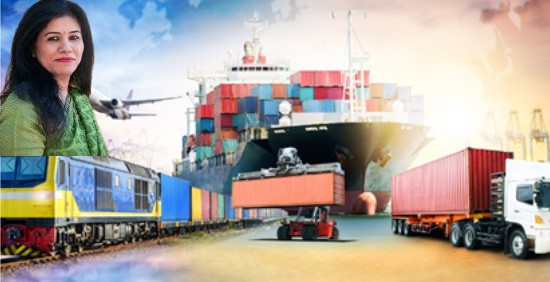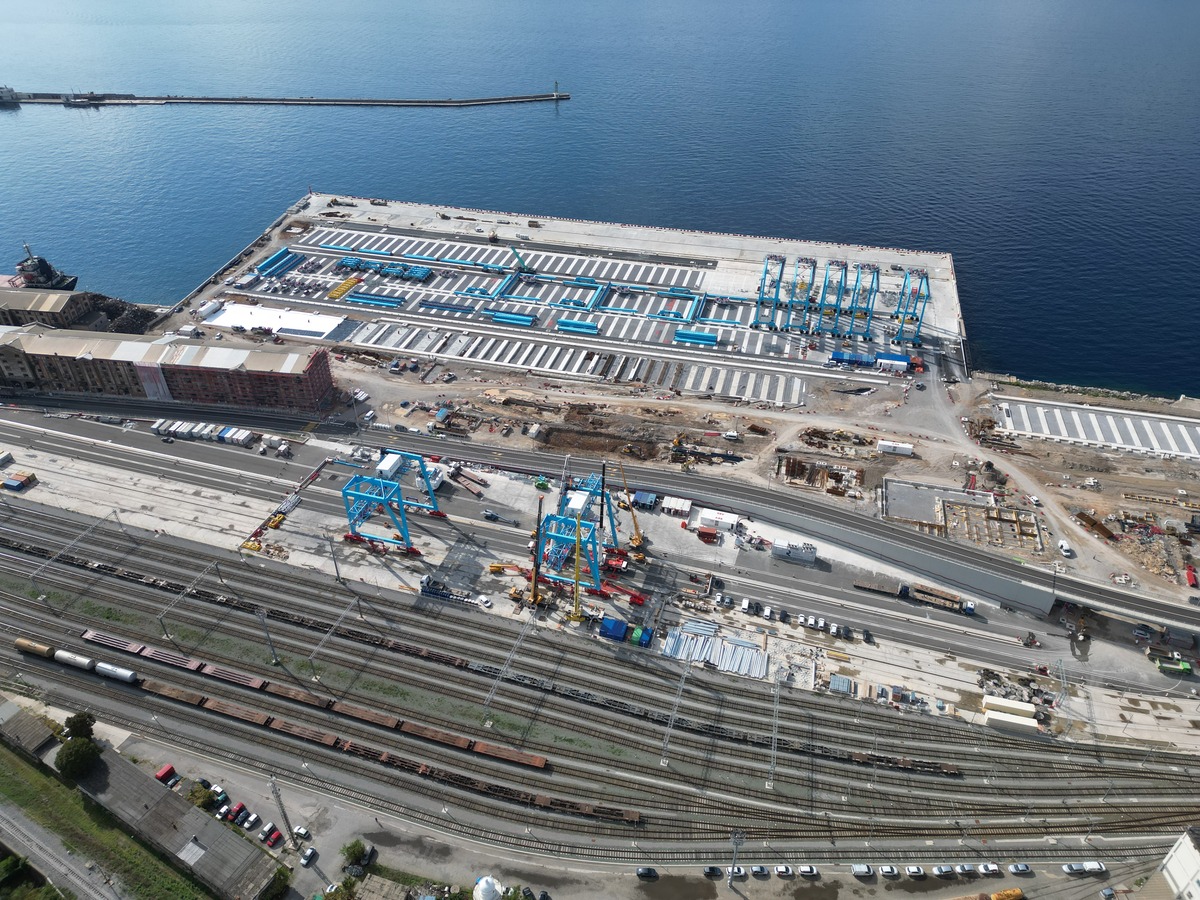Maritime News India : With its extensive coastline and rapidly growing economy, India is positioning itself to emerge as a global leader in the maritime sector. While the country’s presence in global shipbuilding rankings has traditionally been limited despite its strategic geographic advantage, India is now making concerted efforts to change this. Thanks to government initiatives and advanced technological innovations, Cochin Shipyard is leading the charge in sustainable and high-tech shipbuilding. However it also needs to adhere the challenges and provide opportunities to the local communities.
India’s Maritime Ambitions: A Shift Toward Domestic Shipbuilding
India’s maritime sector is on the rise, driven by its 7,000-kilometer coastline and fast-expanding economy. Despite its economic strength, India remains a minor player in global shipbuilding, relying heavily on foreign-owned vessels for cargo transport. The Indian government is determined to reverse this trend and build a stronger domestic shipbuilding industry.
As Madhu Nair, Chairman and Managing Director of Cochin Shipyard (CSL), points out, “India is set to become the third-largest economy globally, but we still depend on foreign ships for much of our trade. This underlines the importance of growing our domestic shipbuilding and repair industries.”
Building a Comprehensive Maritime Ecosystem
India’s goal is ambitious: to become one of the world’s top ten shipbuilding nations by 2030 and reach the top five by 2047. However, achieving these targets requires a broader focus beyond shipbuilding alone. Nair stresses the need to build a comprehensive maritime ecosystem that includes industries like steel, electronics, and renewable energy, which support shipbuilding. Global investments are crucial to creating the momentum necessary for growth.
Progress is already visible. With significant investments in technology and a long-term vision, India’s shipbuilding capabilities are advancing quickly. Cochin Shipyard, a government-owned entity established in 1972, has expanded its scope from smaller vessels to complex naval ships, offshore support vessels, and sophisticated naval platforms, catering to both Indian and international clients.
Technological Advancements Driving Global Competitiveness
To compete on the global stage, Cochin Shipyard has modernized its manufacturing processes. The shipyard has brought in expertise from Europe, the U.S., and Asia to enhance its infrastructure. One notable upgrade is the adoption of Integrated Hull Construction, Outfitting, and Painting (IHOP), a methodology designed to streamline production and boost efficiency.
A $300 million investment in a new dry dock has increased Cochin Shipyard’s capacity, enabling it to accommodate larger ships and compete with global shipbuilders. Among its recent accomplishments is the delivery of India’s first indigenously built aircraft carrier to the Indian Navy, along with the construction of advanced anti-submarine warfare vessels and missile cruisers.
Expanding Reach to International Markets
Cochin Shipyard’s influence is extending beyond India, with more than 50 vessels delivered to clients in Europe, the Middle East, and the United States. As global demand for cargo capacity grows, international shipping companies are increasingly turning to Indian yards for cost-effective vessels. Currently, Cochin Shipyard is building eight multipurpose vessels for a German client, all in compliance with DNV’s stringent class rules.
Leading the Green Shipbuilding Revolution
Aligned with India’s ambition to lead in sustainable shipbuilding by 2030, Cochin Shipyard is embracing green technologies. More than half of its current orders involve eco-friendly vessels, with several prominent green projects already completed. These include zero-emission autonomous cargo ferries for a Norwegian client and electric hybrid ferries for Kochi’s Water Metro system.
The shipyard is also focused on building wind farm support vessels, currently in production for European markets. Cochin Shipyard is working on hybrid service operation vessels for offshore wind farm maintenance in collaboration with North Star Shipping, under contracts with energy giants like EnBW and Siemens Gamesa. Additionally, India’s Green Tug Transition Programme, which aims to replace conventional tugboats with electric and hybrid models, positions Cochin Shipyard to be a key supplier for major Indian ports.
Strong Partnerships for Innovation
Cochin Shipyard’s success is partly due to its partnerships with global maritime leaders. DNV, a global classification and certification organization, has played a key role in helping CSL navigate technological challenges and meet international standards. This collaboration has enhanced Cochin Shipyard’s technological capabilities, positioning it as a trusted global player in shipbuilding.
According to Nair, “The support from DNV has been invaluable. It has bolstered our technological expertise and reinforced our reputation as a global shipbuilding leader. As India’s ‘Make in India’ and ‘Design in India’ initiatives gain momentum, we are incorporating more DNV-certified products, further enhancing our commitment to quality and sustainability.”
Overcoming Challenges for Growth
While Cochin Shipyard has made significant progress, the broader Indian shipbuilding sector still faces challenges. These include competition from established global shipbuilding nations, technological gaps, regulatory hurdles, and the need for workforce development. However, by addressing these issues, India has the potential to reshape its maritime industry and achieve its ambitious growth objectives.
Key Challenges Facing India’s Shipbuilding Industry
- Global Market Competition: India faces stiff competition from well-established shipbuilding nations like South Korea, China, and Japan, which have superior infrastructure, technology, and experience in large vessel construction.
- Infrastructure Gaps: While Cochin Shipyard has modernized, much of India’s shipbuilding infrastructure still lags behind global standards. There is a pressing need for advanced technologies and specialized equipment.
- Skilled Labor Shortage: The need for highly skilled workers proficient in modern shipbuilding technologies remains a challenge, requiring investment in training and development programs.
- Environmental Compliance: India’s transition to green shipbuilding faces technological and financial hurdles, as the industry must meet stringent international environmental standards while remaining competitive.
- Financial Barriers: Shipbuilding is capital-intensive, and securing funding for large-scale projects can be difficult. Cost competitiveness remains a challenge as Indian yards strive to match the efficiency of established global players.
- Policy and Regulatory Hurdles: Complex regulatory requirements and inconsistencies in policy implementation can delay projects and deter foreign investment in India’s shipbuilding sector.
- Geopolitical and Environmental Risks: India’s position in the Indian Ocean exposes it to regional security risks and climate change threats, which could disrupt maritime trade and infrastructure.
- Supply Chain Vulnerabilities: Global supply chain disruptions can impact the timely delivery of materials and components, affecting production schedules and costs.
- Scalability of Operations: Cochin Shipyard’s growth is limited by its capacity to scale operations effectively without compromising quality.
Creating Opportunities for Local Communities
As Cochin Shipyard leads the transformation of India’s shipbuilding industry, it has the potential to create significant opportunities for local communities, especially in Kerala. From job creation and skills development to fostering entrepreneurship and supporting sustainable practices, CSL can drive economic growth and sustainability. By positioning itself as a leader in green and advanced shipbuilding, Cochin Shipyard can help transform Kerala into a thriving maritime hub.
Key Local Opportunities:
- Job Creation and Skills Development: Investing in workforce training for advanced shipbuilding techniques, robotics, and green technologies will provide long-term employment opportunities for local communities.
- Local Supply Chain Development: Partnering with regional manufacturers can reduce India’s dependence on imports, fostering the growth of local businesses and boosting domestic manufacturing capabilities.
- Infrastructure Growth: Ongoing investments in shipyard modernization will generate employment in construction, engineering, and logistics, supporting regional economic development.
- Green Technologies: The focus on eco-friendly shipbuilding presents opportunities for local tech firms, startups, and workers to engage in the development and maintenance of green vessels.
- Strengthening Local Entrepreneurship: By nurturing local maritime-related businesses, Cochin Shipyard can help foster a new generation of entrepreneurs and promote the growth of the regional economy.
- Community Engagement: CSL can strengthen its ties with local communities through CSR initiatives, educational scholarships, and internships, ensuring that the benefits of shipbuilding reach beyond the industry itself.
- Expanding Regional Port and Logistics Capabilities: As CSL grows, it can help improve Kerala’s infrastructure, creating job opportunities in transport, warehousing, and logistics.
By addressing challenges and leveraging opportunities, India’s shipbuilding sector is poised for a green, high-tech future, with Cochin Shipyard leading the charge in sustainable maritime innovation.




